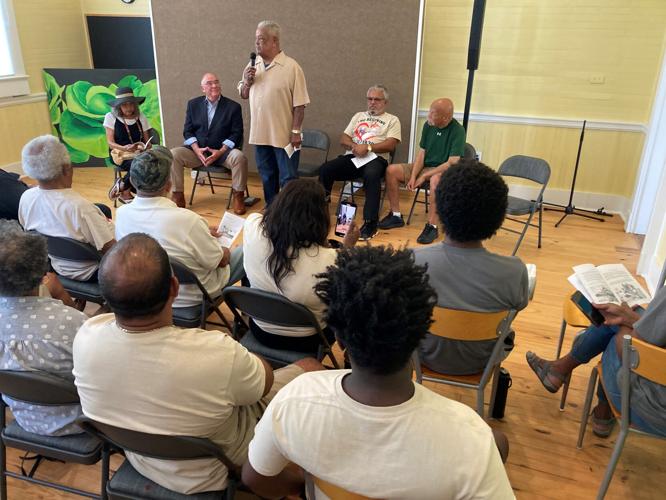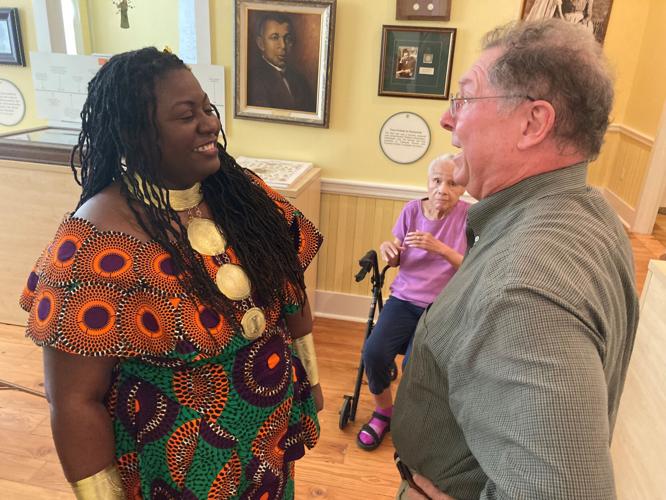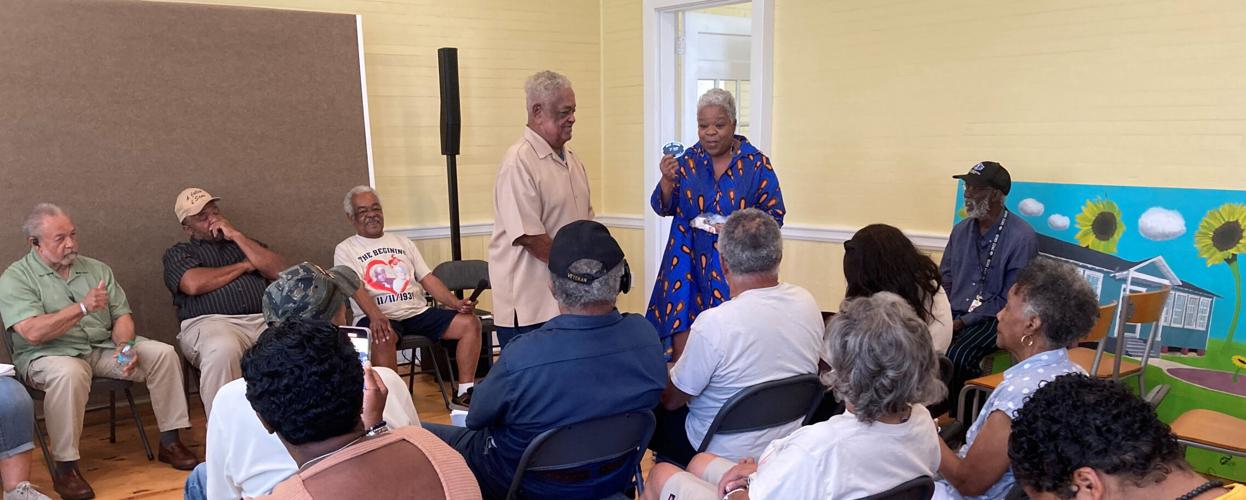One by one, members of the extended Leonard Julien Sr. family picked up the microphone to share stories of growing up in a large Modeste family.
For Carlos Julien, the baby of the family of 11, life was always interesting and "beautiful."

Leonard Julien Jr., standing center, talks June 19 in the Rosenwald Schoolhouse. Joining Leonard are, from left, Alyce Julien, John Wiggins Jr., Carlos Julien and Wallace Julien.
Around 100 Julien descendants met on June 19, Juneteenth, at the River Road African American Rosenwald Schoolhouse in Donaldsonville to record the stories of the Juliens and take part in a photo project designed to record the faces of the area.
Many of the stories surrounded the story of Leonard Julien Sr. and brother Harold inventing the first mechanical sugar cane planting machine. The brothers revolutionized the sugar cane industry.
L'Oreal Evans, executive director of the museum since November, has been working on the photo and oral history project since she was hired.

L'Oreal Evans, executive director of the River Road African American Museum, talks with Herman Waguespack, with the American Sugar Cane League, June 19 during a program at the museum's Rosenwald Schoolhouse.
"We're starting with the Juliens," she said, explaining that the project plans "to reclaim the stores from this region. We want to hear from the people.
"The point of this is to narrate our own stories," Evans said.
Herman Waguespack, with the American Sugar Cane League, praised the Juliens for their contributions to sugar cane production.
"For him (Leonard Julien Sr.) to figure it all out was amazing," Waguespack said.
Leonard Julien Jr. explained that LSU was given state money to design mechanical planter in 1956. But the university's plans were "too complicated" and never worked.
Leonard Jr., Carlos and Wallace Julien took the microphone first, sharing tales of growing up on the family farm. Later they were joined by sister, Alyce Julien, who talked about the things she and her sisters did inside while the brothers were working in the fields. The girls' days were filled with cooking, sewing and cleaning, she said.
Carlos Julien said his father was an innovator who could make anything. He created conveyor belts in the chicken coop and started a bus company when the need arose for the neighborhood children a ride to a school in town.
"We had a lot going on," Alyce Julien said, adding that in the summer months relatives would visit the farm.
RRAAM co-founders Kathe and Darryl Hambrick have been gathering information on the Juliens throughout the history of the museum. Kathe Hambrick presented the Julien family with a replica of the pattern seal, which was on each of the 177 cane planters built.
The brothers also talked about their father's orchestra, that included many members of the family, and his contributions to the Catholic churches in the area.
"Daddy was creative, always asking questions," Alyce Julien said.
Education was important in the family, the brothers said, adding that their mother and father helped to educate them and others near the farm.
Evans said the oral history and photo projects will continue and plans call to add the history of other families to the museum's collection. The museum is temporary closed while renovations are done to the building, which suffered storm damage.
For more information on the museum, visit riverroadaam.org.




